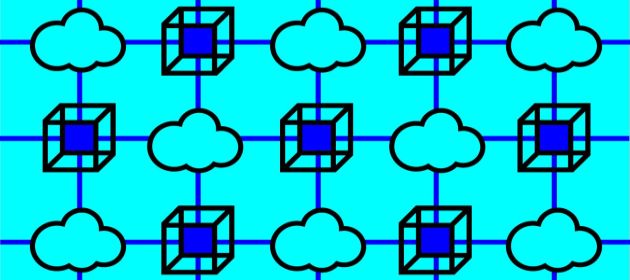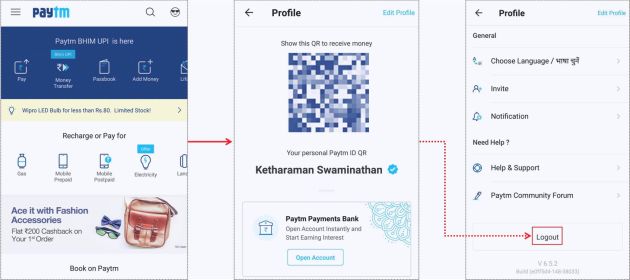Fans of Lewis Carroll will immediately spot the striking resemblance between the title of this post and the refrain from The Mock Turtle’s Song in Alice in Wonderland.
A newly opened electronic brokerage gave free eTrading accounts to all employees of the company in which I was working in circa 2000. I signed up for one immediately.
Since then, I’ve done all my stock trading online. I “dematerialized” all physical shares I held at the time. All subsequent shares I bought and sold have been natively in the dematerialized form. For the last 20 years or so, my entire stock portfolio is stored as 1s and 0s in the depository’s system. For the uninitiated, a depository is “an organization, bank, or institution that holds securities and assists in the trading of securities.” (Source: Investopedia)
I don’t know anyone at the depository. I also don’t have access to the system in which my depository holds my securities. Still I trust the depository not to pull out my shares at random or reset my stock balance to zero on a whim (Side by side, I also take a print out of my demat account’s statement of accounts from time to time, so that, push comes to shove, I have some proof that I held so-and-so quantity of so-and-so share on so-and-so date).
Whenever they tell you, "Why do you need a receipt, it's there in the system", remember, it's their system, not your system (@ClarkHoward)
— GTM360 (@GTM360) June 4, 2015
So far, that trust has not been belied (knock on wood!).
Nevertheless, the moment I heard about the Blockchain and its touted ability to eliminate the need for trust between multiple parties, I’ve been dreaming of a decentralized depository.
The way I envisage it, this “dEpository” will write my buys and sells on a blockchain. After that, my transactions can’t be erased. The application will have an immutable record of my stock-wise balances. Accordingly, even if the depository suddenly becomes dodgy, it won’t be able to tamper with my demat account.
Whenever a mortgage provider grants a home loan, it retains the original deed of the property. Apart from serving as the collateral, this ensures that the homeowner can’t sell off the property during the tenor of the mortgage. The lender returns the deed to the borrower after he or she has repaid the loan in full. In the event of a default in repayment, the bank can sell the property and recover the outstanding loan amount. In theory, the recovery process is robust but, in actual practice, the lender often needs to jump through a lot of hoops to recover its outstandings. The legal and administrative procedures can take a lot of time and cost a lot of money for the lender.
Blockchain can help: It’s possible to code a “Mortgage Smart Contract” in such a way that it will automatically transfer the title to the lender in the event of a default in mortgage payments. In this manner, a blockchain application can virtually automate the entire recovery process.
The feasibility of dEpository hinges upon successful resolution of many technical questions around security, privacy, and so on. But there’s little doubt that customers would love it. Financial institutions can leverage the transparency and immutability of the dRepository to widen the appeal of equity as an investment category to a broader segment of the population. But, since the common man has many other concerns about equity markets, a blockchain-based dEpository alone might not push the needle on market participation by too much. As a result, financial institutions may not rush to build a dEpository. Therefore, I doubt if this app will become a reality unless it is mandated by the regulator.
 For the Mortgage Smart Contract application to work, the government’s land registry needs to be on the blockchain. It will also face resistance from homeowners. Used to renegotiating repayment terms when they default on their mortgage payments, most borrowers won’t be too thrilled with the idea of automatically forfeiting their property to a smart contract if and when a default happens.
For the Mortgage Smart Contract application to work, the government’s land registry needs to be on the blockchain. It will also face resistance from homeowners. Used to renegotiating repayment terms when they default on their mortgage payments, most borrowers won’t be too thrilled with the idea of automatically forfeiting their property to a smart contract if and when a default happens.
But mortgage lenders will surely be interested in building this application since it helps them save time and money in the recovery process. Since consumers apparently crave for managing their finances entirely digitally, it won’t be too hard for an FI to slip the smart contract into the online mortgage agreement – one click on the “I Agree” button and the smart contract will be “armed”. This might sound a bit dystopian until you hear about the following Blockchain use case already under development:
Child has medical emergency and needs to be rushed to hospital. Mother is unable to start the car because she’s two days late on her loan repayment and the bank has locked her car. (Source: WIRED video, 16m:03s).
Customers may want to use one kind of Blockchain apps whereas Financial Institutions may want to build another kind of Blockchain apps.
Only time will tell whether the twain shall meet.
UPDATE DATED 18 FEBRUARY 2022:
Four years after the original post was published, I have not come across a single decentralized depository. On the other hand, as you can see in the comments, there are many lending dApps of the nature described in the original post. And, as I’d surmised, most of them block the borrower’s use of the asset if she defaults on the loan repayments.



After going over a number of the blog articles on your site, I honestly appreciate your way of writing a blog.
I bookmarked it to my bookmark webpage list and will be checking back soon. Please visit my web site too and tell
me how you feel.